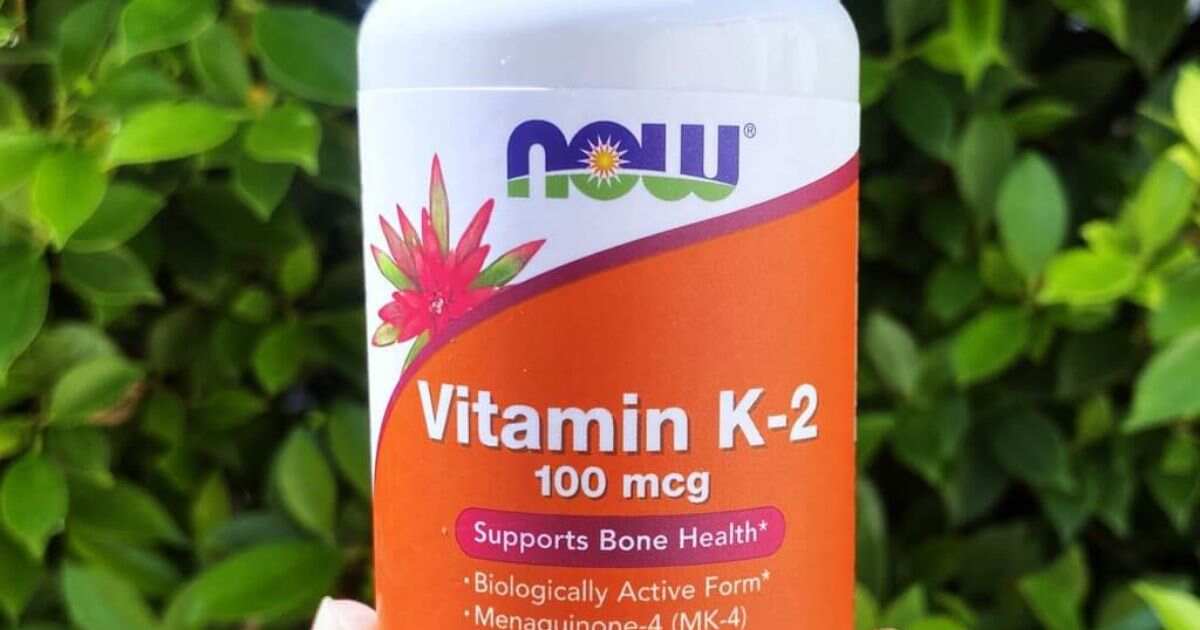Metabolic vitamins are important nutrients that help your body produce the energy it needs. These vitamins play a crucial role in maintaining a healthy metabolism, which is essential for overall health and well-being.
Metabolic vitamins include a variety of b vitamins such as b1, b2, b3, b5, b6, b7, b9, and b12, as well as vitamin c. these vitamins work together to help convert food into energy and regulate metabolism. Without adequate levels of these vitamins, our bodies may experience decreased energy levels, fatigue, and other metabolic issues.
In addition to supporting energy production and metabolism, metabolic vitamins also play important roles in other bodily functions, including immune system function, brain health, and cardiovascular health. In this article, we’ll take a closer look at each of the metabolic vitamins and their benefits for overall health and wellness.

Credit: www.amazon.com
Vitamin B-Complex: Keeping Your Energy Levels Up
Metabolic Vitamins – Vitamin B-Complex: Keeping Your Energy Levels Up
If you’ve been feeling exhausted or sluggish lately, you might need to include more vitamin b-complex in your diet. Not only is this vitamin great for enhancing your metabolism, but it’s also super effective when it comes to boosting your energy levels.
Let’s dive deeper into what exactly this vitamin is, and how it can help improve your overall health!
Description Of Vitamin B-Complex And Its Role In Metabolism
The vitamin b-complex is a group of eight water-soluble vitamins that work together to ensure that your body functions optimally. They convert food into energy, which is then used by your body’s cells for various activities such as growth and repair.
Lack of vitamin b-complex can lead to various health issues such as anemia, skin disorders, and even depression.

How Vitamin B-Complex Can Boost Energy Levels
Feeling drained and low on energy lately? Well, adding more vitamin b-complex to your diet might be the perfect solution for you! One of the most significant benefits of this vitamin is that it helps you produce energy by aiding in the proper functioning of your metabolic pathway.
It also helps reduce stress and fatigue, ensuring that you stay active throughout the day.
Here are some of the ways in which vitamin b-complex can boost your energy levels:
- Enhances the production of red blood cells, which transports oxygen throughout your body. This helps in fighting off fatigue and keeping you energized.
- Provides an overall boost to your metabolism, ensuring that your body processes food and nutrients efficiently.
- Helps your body absorb iron more effectively, which is crucial for maintaining healthy energy levels.
List Of Foods Rich In Vitamin B-Complex
Now that you know the benefits of vitamin b-complex let’s talk about some of the foods you can incorporate into your diet that are rich in this essential vitamin!
Here’s a list of foods that are chock-full of vitamin b-complex:
- Whole grains such as brown rice, quinoa, and oatmeal
- Dairy products such as milk, yogurt, and cheese
- Meat sources such as chicken, turkey, and lean beef
- Seafood such as salmon and tuna
- Vegetables such as spinach, broccoli, and kale

Incorporating these foods into your diet regularly can help ensure that you’re getting enough vitamin b-complex. However, if you struggle to get enough of this vitamin through your diet alone, supplements are also an excellent option.
Vitamin b-complex is a vital nutrient that plays a crucial role in maintaining your overall health and well-being. Whether you’re feeling low on energy, combating against stress and fatigue, or just looking to enhance your metabolism, incorporating more of this vitamin into your diet is an excellent way to achieve your health goals!
Vitamin C: A Powerful Antioxidant
Metabolic Vitamins: Vitamin C – A Powerful Antioxidant
Vitamin c, also known as ascorbic acid, is a vital nutrient required by the human body for numerous functions. This essential vitamin acts as a potent antioxidant that helps fight against harmful free radicals, which can cause cell damage and lead to chronic diseases.
Description Of Vitamin C And Its Antioxidant Properties
- Antioxidant properties: Vitamin c is a powerful antioxidant that neutralizes free radicals, protecting cells from damage and reducing inflammation in the body.
- Boosts immunity: Vitamin c improves immune function by stimulating the production of white blood cells that fight against infections and diseases.
- Maintenance of healthy skin: Vitamin c is essential for the synthesis of collagen, a protein that provides structure to the skin. It also helps protect the skin against harmful uv rays.
- Reduces risk of chronic diseases: Vitamin c’s antioxidant properties can help reduce the risk of chronic diseases such as heart disease, cancer, and eye-related degeneration.
How Vitamin C Can Improve Metabolic Function

Vitamin c plays a crucial role in metabolic function and can have a direct impact on your overall health.
- Enhanced absorption of iron: Vitamin c helps the body absorb iron from plant-based foods such as spinach, lentils, and beans, which can improve red blood cell production.
- Improves insulin sensitivity: Vitamin c helps regulate blood sugar levels and reduces insulin resistance, making it beneficial for people with diabetes or prediabetes.
- Prevents metabolic syndrome: Vitamin c can reduce the risk of metabolic syndrome, a group of conditions that increase the risk of heart disease, stroke, and diabetes.
- Enhances exercise performance: Vitamin c can enhance endurance and reduce muscle fatigue during high-intensity workouts.
List Of Foods Rich In Vitamin C
To add more vitamin c to your diet, consider these foods that are rich in this essential nutrient:
- Citrus fruits such as oranges, grapefruits, and lemons
- Berries such as strawberries, raspberries, and blueberries
- Kiwifruit
- Papayas
- Pineapple
- Broccoli
- Bell peppers
- Brussels sprouts
- Kale
- Tomatoes
Incorporating these foods into your diet can help ensure that you are getting enough of this essential nutrient to support metabolic function and overall health.
Vitamin D: Regulating Metabolism
Metabolic Vitamins
Vitamins are essential nutrients for our body’s proper functioning. They take care of our immune system, eyesight, skin texture, and cell growth. But did you know that certain vitamins also regulate our metabolism? In this blog post, we’ll explore one such vitamin, vitamin d, and its role in regulating metabolism to support weight management.
Description Of Vitamin D And Its Role In Regulating Metabolism:
Vitamin d is a vital nutrient that our body requires to maintain healthy bones. It helps the body absorb calcium and phosphorus, two crucial minerals needed for bone metabolism. However, that’s not all it can do. The role of vitamin d extends beyond bone health, and it can also regulate metabolism.
Vitamin d helps in the biosynthesis of serotonin, a happy hormone that can influence your mood and appetite. It can also contribute to regulating insulin secretion in the pancreas, which controls blood sugar levels. Vitamin d further enables the breakdown of glucose in the body through gluconeogenesis, a metabolic pathway that aids in the production of glucose from non-carbohydrate sources.
How Vitamin D Can Support Weight Management:
Research suggests that vitamin d deficiency is linked to obesity, making it a crucial nutrient for weight management. Vitamin d enhances the body’s metabolism and may suppress the storage of fat cells, thereby limiting weight gain. It can also reduce inflammation and improve gut flora, contributing to a healthy digestive system.
Studies show that a combination of vitamin d and calcium is more effective in promoting weight loss than calcium alone. Vitamin d can increase the absorption of calcium in the body, which is shown to reduce belly fat. Hence, a combination of vitamin d and calcium can improve weight management and fight obesity.
List Of Foods Rich In Vitamin D:
Vitamin d is often referred to as the sunshine vitamin as the sun’s uv rays can contribute to its production in the body. However, it can be challenging to get enough vitamin d from the sun alone. Therefore, it’s essential to include vitamin d-rich foods in your diet, such as:
- Fatty fish such as salmon, tuna, and mackerel
- Cod liver oil
- Egg yolks
- Mushrooms (exposed to uv light)
- Fortified milk, orange juice, and cereal
Adding these vitamin d-rich foods to your diet can help improve metabolism and support weight management.
Vitamin d plays a vital role in regulating metabolism, particularly in terms of weight management. It enhances the metabolism, suppresses the storage of fat cells, and reduces inflammation. A combination of vitamin d and calcium can further improve weight management.
Including vitamin d-rich foods in your diet can help regulate metabolism and promote a healthy weight.
Vitamin E: Aiding Metabolism And Fighting Oxidative Stress
Metabolic vitamins: vitamin e – aiding metabolism and fighting oxidative stress
Vitamin e is a fat-soluble nutrient well-known for its potent antioxidant activity, which plays a significant role in maintaining optimal health. It is a group of eight compounds, including four tocopherols and four tocotrienols, with alpha-tocopherol being the most biologically active form.
Description Of Vitamin E And Its Role In Aiding Metabolism
Vitamin e has a crucial role in aiding metabolic processes, ensuring the right utilization of nutrients, and maintaining the correct functioning of several organs and tissues. Its potent antioxidant properties prevent the oxidation of fatty acids, amino acids, and dna molecules, and protect the cell membrane from damage caused by free radicals.
Moreover, it helps in the formation of red blood cells and enhances immune function.
How Vitamin E Can Fight Oxidative Stress
Oxidative stress occurs when there is an imbalance between the production of free radicals and the antioxidant defense mechanisms that neutralize them. Vitamin e can fight oxidative stress by neutralizing free radicals and preventing them from damaging cell membranes and other cellular structures.
Studies suggest that vitamin e supplementation can reduce oxidative stress and inflammation, providing numerous health benefits. It can lower the risk of chronic diseases like cancer, cardiovascular disease, and cognitive decline. Additionally, vitamin e can reduce the symptoms of age-related macular degeneration and provide relief from menstrual pain.
List Of Foods Rich In Vitamin E
Here are some of the best dietary sources of vitamin e:
- Almonds: A handful of almonds contains 7.4 mg of vitamin e, which is 49% of the daily value (dv).
- Avocado: One medium avocado provides 4.2 mg of vitamin e, which is 28% of the dv.
- Spinach: One cup of cooked spinach contains 5.5 mg of vitamin e, which is 37% of the dv.
- Sunflower seeds: One ounce of roasted sunflower seeds provides 7.4 mg of vitamin e, which is 49% of the dv.
- Olive oil: One tablespoon of olive oil has 1.9 mg of vitamin e, which is 13% of the dv.
Other food sources of vitamin e include hazelnuts, peanuts, sweet potatoes, pumpkin, broccoli, mango, and kiwi.
Vitamin e is an essential nutrient that aids metabolism and fights oxidative stress. Including vitamin e-rich foods in your diet can help maintain optimal health and prevent chronic diseases.
Frequently Asked Questions For Metabolic Vitamins
What Are Metabolic Vitamins?
Metabolic vitamins are vitamins that help in energy production and metabolism in our bodies. These include vitamin b1, b2, b3, b5, b6, b7, b9, and b12.
What Are The Benefits Of Metabolic Vitamins?
Metabolic vitamins help improve energy, boost metabolism, support healthy skin, hair, and nails, enhance brain function, and promote a healthy heart.
How Do I Know If I Am Deficient In Metabolic Vitamins?
Symptoms of metabolic vitamins deficiency include fatigue, weakness, irritability and nervousness, poor digestion, anemia, skin disorders, and weakened immune system.
Where Can I Find Metabolic Vitamins In My Diet?
Metabolic vitamins can be found in a variety of foods, including meat, fish, poultry, eggs, dairy products, leafy greens, whole grains, and fortified cereals.
Can I Take Metabolic Vitamins Supplements?
Supplementation may be necessary for people who are deficient in certain vitamins or have trouble absorbing vitamins from their diet. However, it is best to consult with a healthcare professional before taking any supplements.
Conclusion
As with most things related to health, consistency is key when it comes to taking metabolic vitamins. These vitamins can have a significant impact on your body’s ability to function optimally, and it’s important to give them the attention they deserve.
Whether you’re looking to boost your energy levels, improve your metabolism, or support your immune system, there’s likely a metabolic vitamin out there that can help. Ultimately, the best way to determine which vitamins are right for you is to speak with your doctor or a qualified healthcare practitioner.
With their guidance, you can create a plan that will give you the greatest chance of success in achieving your health goals. Remember, taking care of your body is an important investment in your overall well-being, so don’t hesitate to take the steps necessary to keep yourself feeling your best.




